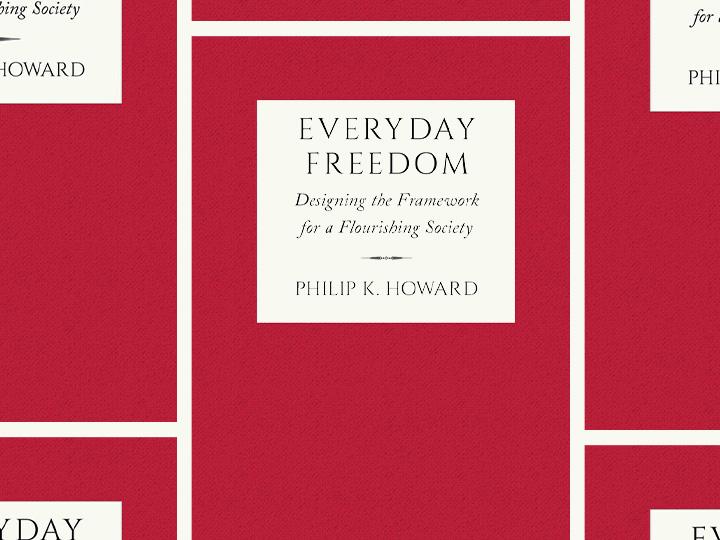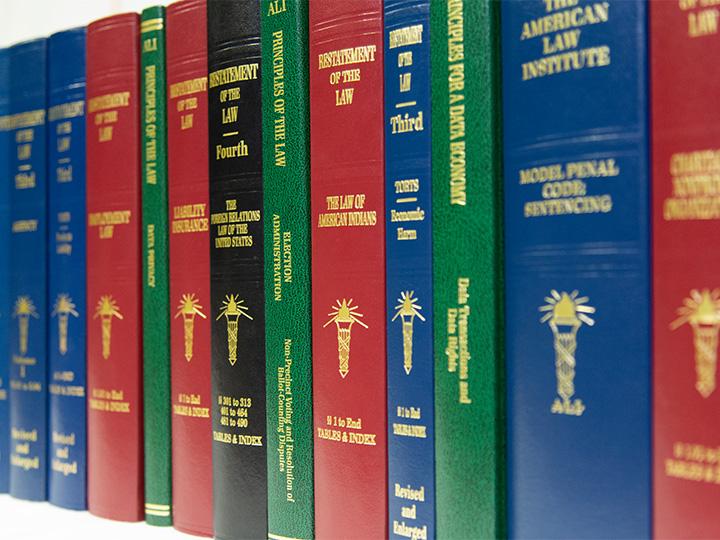Have you ever wondered what exactly goes into completing an ALI project? There’s nobody better to talk about the ALI process than four veteran Reporters whose projects may be completed at the 2021 Annual Meeting.
In this episode of Reasonably Speaking, Reporter on one of our newest projects, Lyrissa Lidsky from Restatement of the Law Third, Torts: Defamation and Privacy will moderate the panel of Matthew L.M. Fletcher (American Indian Law), Geoffrey P. Miller (Compliance and Enforcement for Organizations), Kenneth W. Simons (Intentional Torts), and Christiane C. Wendehorst (Principles for a Data Economy), as they discuss their journey from project conception to ALI member approval and completion.
They will discuss how they came to be an ALI Reporter, how they work with project Advisers and ALI members, the draft approval process, surprises they learned along the way, and more.

Matthew L.M. Fletcher
Matthew L.M. Fletcher is Professor of Law at Michigan State University College of Law and Director of the Indigenous Law and Policy Center. He sits as the Chief Justice of the Poarch Band of Creek Indians Supreme Court and also sits as an appellate judge for the Grand Traverse Band of Ottawa and Chippewa Indians, the Mashpee Wampanoag Tribe, the Match-E-Be-Nash-She-Wish Band of Pottawatomi Indians, the Pokagon Band of Potawatomi Indians, the Hoopa Valley Tribe, the Nottawaseppi Huron Band of Potawatomi Indians, and the Santee Sioux Tribe of Nebraska. He is a member of the Grand Traverse Band, located in Peshawbestown, Michigan.
He is the Reporter for the American Law Institute’s Restatement of the Law of American Indians. His newest book, Ghost Road: Anishinaabe Responses to Indian-Hating, will be published by Fulcrum Publishing in 2020. His most recent law review articles appeared in the California Law Review, Michigan Law Review, and Stanford Law Review Online. His hornbook, Federal Indian Law (West Academic Publishing), was published in 2016 and his concise hornbook, Principles of Federal Indian Law (West Academic Publishing), in 2017. Professor Fletcher co-authored the sixth and seventh editions of Cases and Materials on Federal Indian Law (West Publishing 2011 and 2017) and two editions of American Indian Tribal Law (Aspen 2011 and 2020), the only casebook for law students on tribal law. He also authored The Return of the Eagle: The Legal History of the Grand Traverse Band of Ottawa and Chippewa Indians (Michigan State University Press 2012), and American Indian Education: Counternarratives in Racism, Struggle, and the Law (Routledge 2008). He co-edited The Indian Civil Rights Act at Forty with Kristen A. Carpenter and Angela R. Riley (UCLA American Indian Studies Press 2012) and Facing the Future: The Indian Child Welfare Act at 30 with Wenona T. Singel and Kathryn E. Fort (Michigan State University Press 2009). Professor Fletcher’s scholarship has been cited by the United States Supreme Court; in more than a dozen federal, state, and tribal courts; in dozens of federal, state, and tribal court briefs; and in hundreds of law review articles and other secondary legal authorities. Finally, Professor Fletcher is the primary editor and author of the leading law blog on American Indian law and policy, Turtle Talk, http://turtletalk.wordpress.com.
Matthew graduated from the University of Michigan Law School in 1997 and the University of Michigan in 1994. He has worked as a staff attorney for four Indian Tribes – the Pascua Yaqui Tribe, the Hoopa Valley Tribe, the Suquamish Tribe, and the Grand Traverse Band. He previously sat on the judiciaries of the Lac du Flambeau Band of Lake Superior Chippewa Indians, the Little River Band of Ottawa Indians, the Lower Elwha Klallam Tribe, and the Turtle Mountain Band of Chippewa Indians; and served as a consultant to the Seneca Nation of Indians Court of Appeals. He is married to Wenona Singel, a member of the Little Traverse Bay Bands of Odawa Indians, and they have two sons, Owen and Emmett.
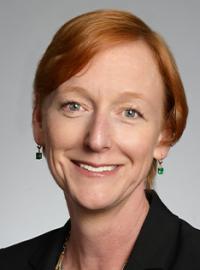
Lyrissa B. Lidsky
Lyrissa Lidsky is Dean of the University of Missouri School of Law and Judge C.A. Leedy Professor of Law, and the focus of her research and teaching is the intersection of Tort Law and the First Amendment, with an emphasis on free speech issues in social media. Missouri Lawyers Media named her its 2020 Woman of the Year based on her scholarship, passion for law, mentorship of students, and engagement of constituencies supporting the school of law.
Before becoming dean, Lyrissa served in a variety of leadership roles at the University of Florida. There she was associate dean for graduate and international programs and associate dean for faculty development. She also held the Stephen C. O’Connell Chair in Law and received a number of teaching awards during her 23-year tenure at UF, including student-selected awards such as Teacher of the Year (twice) and Faculty Graduation Speaker (three times), as well as Teacher of the Year, which was selected by a faculty committee.
A prominent Media Law scholar, she is co-Reporter on The American Law Institute’s Restatement of the Law Third, Torts: Defamation and Privacy, co-author of a leading Media Law casebook, a First Amendment casebook, and a reference book on press freedom and has published dozens of articles, culminating in her recent article in California Law Review titled Considering the Context of Online Threats. Her work on anonymous speech has been cited by a number of state supreme courts and the highest courts of Canada and Hong Kong.
Before becoming a law professor, Lyrissa served as a clerk for the Honorable Joseph T. Sneed of the U.S. Court of Appeals for the Ninth Circuit in San Francisco, Calif. Lyrissa received her law degree from the University of Texas School of Law with high honors. She was initiated into Order of the Coif in recognition of her scholastic achievement and served as articles editor of the Texas Law Review. Before law school, she was a Fulbright Scholar at Cambridge University in England, studying medieval legal history and early development of the Common Law. She received her bachelor’s degree, summa cum laude, in English and political science from Texas A&M University.
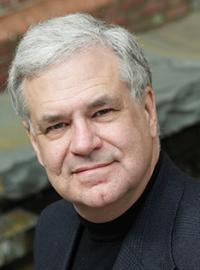
Geoffrey P. Miller
Geoffrey P. Miller is the Styvesant P. Comfort Professor of Law at New York University School of Law, founder and director of NYU School of Law’s Center for Financial Institutions, and co-director of the Center for Civil Justice. He serves as Reporter for ALI’s Principles of the Law, Compliance and Enforcement for Organizations.
He is also an author or editor of a dozen books and more than 200 articles in the fields of financial institutions, contract law, corporate and securities law, constitutional law, civil procedure, legal history, jurisprudence, and ancient law. He has taught a wide range of subjects including law and economics, corporations, compliance and risk management, property, regulation of financial institutions, land development, securities law, the legal profession, and legal theory. He received his BA from Princeton in 1973 and his JD from Columbia in 1978, where he was a Stone Scholar and editor-in-chief of the Columbia Law Review. He clerked for Judge Carl McGowan of the U.S. Court of Appeals for the District of Columbia Circuit and Justice Byron White of the United States Supreme Court. After two years as an attorney adviser at the Office of Legal Counsel of the U.S. Department of Justice and one year with a Washington, DC, law firm, he joined the faculty of the University of Chicago Law School in 1983 and NYU School of Law in 1995.
Geoffrey has been a visiting professor or visiting scholar at Columbia University, Harvard University, University of Minnesota, University of Basel (Switzerland), University of Genoa (Italy), Collegio Carlo Alberto (Italy), Study Center Gerzensee (Switzerland), Vanderbilt University, University of St. Gallen (Switzerland), University of Frankfurt (Germany), University of Sydney (Australia), University of Auckland (New Zealand), and the Bank of Japan. He is a founder of the Society for Empirical Legal Studies, a scholarly organization devoted to promoting statistical and other empirical techniques in the study of legal institutions. He is co-founder of and Senior Academic Fellow at NYU's Program on Corporate Compliance and Enforcement, co-convener of the Global Economic Policy Forum, a member of the board of directors of State Farm Bank, and a fellow in the American Academy of Arts and Sciences.
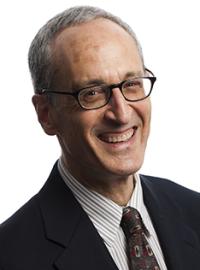
Kenneth W. Simons
Ken is Chancellor’s Professor of Law and Philosophy at UC Irvine School of Law. He serves as Chief Reporter for The American Law Institute’s Restatement Third of Torts: Intentional Torts to Persons. In January 2019, he was named the recipient of the 2019 William L. Prosser Award by the Association of American Law Schools Section on Torts and Compensation Systems, which recognizes “outstanding contributions of law teachers in scholarship, teaching and service” related to tort law and compensation systems.
A leading scholar of tort law, criminal law, and law and philosophy, He has published influential scholarship concerning consent, assumption of risk and contributory negligence; the nature and role of mental states in criminal, tort and constitutional law; and negligence as a moral and legal concept. He has also explored such topics as bias crimes, corrective justice, the logic of egalitarian norms, mistake and impossibility in criminal law, and strict criminal liability.
Before joining UC Irvine School of Law, he was Professor of Law and The Honorable Frank R. Kenison Distinguished Scholar in Law at Boston University School of Law. He was a law clerk to U.S. Supreme Court Justice Thurgood Marshall and to Judge James L. Oakes, U.S. Court of Appeals for the Second Circuit. Ken also worked as an associate at Goodwin, Procter & Hoar in Boston, in the field of civil litigation. He received his J.D. from Michigan Law School, magna cum laude, and graduated from Yale University, summa cum laude, with a B.A. in philosophy. 8.7.3

Christiane C. Wendehorst
University of Missouri School of LawDr. Christiane C. Wendehorst has been Professor of Civil Law at the University of Vienna since 2008. Amongst other functions, she is founding member and President of the European Law Institute (ELI), chair of the Academy Council of the Austrian Academy of Sciences (ÖAW), chair of the Civil Law section of the Austrian Jurists' Forum (ÖJT), co-chair of the German Data Ethics Committee and member of the Academia Europea (AE), the International Academy for Comparative Law (IACL), The American Law Institute (ALI) and the Bioethics Committee at the Austrian Federal Chancellery. She serves as co-Reporter for Principles for a Data Economy, a joint ALI and ELI project.
Currently, her work is focused on legal challenges arising from digitalization, and she has worked as an expert on subjects such as digital content, Internet of Things, artificial intelligence and data economy for, inter alia, the European Commission, the European Parliament, the German Federal Government, the ELI and the ALI. Prior to moving to Vienna, she held chairs in in Göttingen (1999-2008) and Greifswald (1998-99) and was Managing Director of the Sino-German Institute of Legal Studies (2000-2008). 8.7.1
The ALI drafts being discussed in this episode are being presented at the 2021 Annual Meeting. You may request a free pdf copy of these drafts by emailing communications@ali.org.
The ALI Adviser – Project Pages
The ALI Adviser is intended to inform readers about the legal topics and issues in ALI’s current projects. Posts on The ALI Adviser are written by ALI project participants, ALI members, and outside sources.
American Indian Law: When Two Sovereigns Collide
In this episode of Reasonably Speaking, renowned experts on American Indian law and policy, Matthew L.M. Fletcher and Wenona T. Singel, discuss the nuanced and highly complex field of American Indian Law.
Consent and Sexual Assault in Criminal v. Tort Law
In this episode of Reasonably Speaking, NYU Law’s Erin Murphy and UC Irvine Law’s Kenneth W. Simons explore the difference between criminal law and tort law in the United States and then focus on how “consent” is, and should be, defined in sexual assault allegations.
Turtle Talk Blog
Turtle Talk is the blog for the Indigenous Law and Policy Center at Michigan State University College of Law. It is the leading law blog on American Indian law and policy. Matthew Fletcher is the primary editor and author. It specializes in providing access to primary documents related to current topics in American Indian law and policy — court opinions and pleadings, federal government documents, scholarly materials, and other sources.
The European Law Institute - ELI
Founded in June 2011 as an entirely independent organization, the European Law Institute (ELI) aims to improve the quality of European law, understood in the broadest sense. It seeks to initiate, conduct and facilitate research, to make recommendations, and to provide practical guidance in the field of European legal development.
The Institute has high ambitions, reflected in its Manifesto and in its Articles of Association. It will study and stimulate European legal development in a global context. That should be taken to include, but by no means be limited to, the development of European law by the European Union and the Council of Europe.
ELI's Principles for a Data Economy Website
The Principles for a Data Economy project is jointly conducted by the European Law Institute (ELI) and The American Law Institute (ALI). Lawyers from both sides of the Atlantic are developing the project further, to develop Principles that are applicable in different legal systems. Learn more about the joint project on this dedicated ELI website.
Introduction: Thank you for joining us for this episode of The American Law Institute’s podcast Reasonably Speaking. Have you ever wondered what goes into completing an ALI project? In this episode, our Reporter exclusive-panel discusses how they came to be ALI Reporters, as well as their journey from project conception to ALI membership approval and completion.
Our first panelist is Matthew Fletcher. Matthew serves as Reporter on Restatement of the Law, The Law of American Indians. He is Foundation Professor of Law at Michigan State University College of Law where he serves as the Director of the Indigenous Law and Policy Center. He sits as the Chief Justice of the Poarch Band of Creek Indians Supreme Court and also sits as an appellate judge for nine other bands and tribes. He is also a member of the Grand Traverse Band of Ottawa and Chippewa Indians.
Our second panelist is Geoffrey Miller. Geoff serves as Reporter on Principles of the Law, Compliance and Enforcement for Organizations. He is the Stuyvesant P. Comfort Professor of Law at New York University School of Law, founder and director of NYU School of Law’s Center for Financial Institutions, and co-director of the Center for Civil Justice. He is also a founder of the Society for Empirical Legal Studies, a scholarly organization devoted to promoting statistical and other empirical techniques in the study of legal institutions.
Our third panelist is Dr. Christiane Wendehorst. Christiane serves as co-Reporter for Principles for a Data Economy, a project conducted jointly with the ALI and the European Law Institute. She is the Professor of Civil Law at the University of Vienna, and founding member and President of the ELI. She is also chair of the Civil Law section of the Austrian Jurists’ Forum, co-chair of the German Data Ethics Committee and member of the Academia Europea, the International Academy for Comparative Law, and the Bioethics Committee at the Austrian Federal Chancellery.
Our fourth panelist is Ken Simons. Ken serves as Chief Reporter for Restatement Third of Torts: Intentional Torts to Persons. Ken is a leading scholar of tort law, criminal law, and philosophy. He is Chancellor’s Professor of Law and Philosophy at UC Irvine School of Law and Co-director of UCI’s Center for Legal Philosophy. In January 2019, he was named the recipient of the 2019 William L. Prosser Award by the Association of American Law Schools Section on Torts and Compensation Systems, which recognizes “outstanding contributions of law teachers in scholarship, teaching and service” related to tort law and compensation systems.
Today’s panel is moderated by Lyrissa Lidsky. Lyrissa, a prominent Media Law scholar, serves as co-Reporter on Restatement of the Law Third, Torts: Defamation and Privacy. She is Dean of the University of Missouri School of Law and Judge C.A. Leedy Professor of Law. Missouri Lawyers Media named her its 2020 Woman of the Year based on her scholarship, passion for law, mentorship of students, and engagements of constituencies supporting the school of law. Her work on anonymous speech has been cited by a number of state supreme courts and the highest courts of Canada and Hong Kong.
I will now turn over the microphone to Dean Lidsky.
Lyrissa Lidsky: Thank you. I'm Lyrissa Lidsky and I'm very honored to be here today with these distinguished ALI reporters. I'm a relatively new co-Reporter on the Restatement of Defamation and so I'm eager to learn from their wisdom. We're going to start with asking each of the panelists to give a brief overview of their project. I'm going to start with Geoffrey Miller of NYU. Geoffrey, can you tell us about your project?
Geoffrey Miller: Our project is a Principles project, which is a little bit different than the Restatement projects in that, it more or less aims to provide guidelines for best practices rather than summaries of what the law is. It's also not entirely about law. It's about practice that relate to law, but aren't always legally. My co-Reporters are Jennifer Arlen, Jim Fanto and Claire Hill. And this is entirely a four-part project, I'm just one of four so I want to call them out for facts.
The basis of our project comes out of the 1990s, 2000s and 2010s, where we had an absolutely enormous spectacular growth in fines and criminal prosecutions of organizations for various misconduct and misdeeds. A lot of financial organizations, but also pharmaceutical companies, exporters all over the map. And this caused a very powerful set of discussions and thinking about, what is a way to both enforce the law against organizations misconduct, but also to encourage organizations to enforce the law on themselves, through the processes of compliance.
As we get into this, so we saw that there was basically a challenge with the role of lawyers because lawyers are very involved in this process, but not always in a strictly legal role. They play a role that's more holistic and involves non-legal as well as legal aspects, but it challenges the basic idea of what it means to be a lawyer. There's also three new professions that have grown up. What is the profession of internal compliance, one is risk management, and one is internal audit, which had been around, but it's been professionalized so we've seen the growth of three new professions.
And, there's also a very significant international dimension to these events because the discipline of compliance and certain enforcement strategies, the criminal enforcement against really grew in the United States, but is spread worldwide. So our project tries to offer some thoughts and best practices that could be adapted not only in the United States, but also around the world.
Lyrissa: That's fascinating. Christiane, speaking of international connections, I know your project has some interesting international components. What can you tell us?
Christiane Wendehorst: Thank you so much Lyrissa. Indeed, I'm covering co-Reporter on the Principles for a Data Economy project, and very much like Geoffrey's project this is a Principles project. But it is a special project also under another perspective, it is a joint project of The American Law Institute and the European Law Institute. So we have a reporter from the ALI side, which is Neil Cohen and a Reporter from the ELI side, which is myself. And we also have two wonderful chairs, which is the Advisor from the ALI side and Lord John Thomas I'm from the UK is the former Lord Chief Justice of England and Wales from the ELI side.
So this is a joint project and I'm very happy that we embarked on this project. Both institutions came together in 2016, 2017 indeed to discuss what would be a promising project to take forward as a joint endeavor and our choice to fell on the data economies, so the data economies have growing importance. I don't have to explain that. There is a lot of uncertainty worldwide about how to address those phenomena of the data economy in legal terms.
So, with the emergence of the data economy, we have to decide how to apply the doctrines and the rules that have emerged over the centuries. So data cannot readily be classified as goods or rights, and they're arguably not services, they're simply data. The uncertainty which we see worldwide indeed as to the applicable rules or doctrines, is beginning to travel stakeholders, such as data driven industries, smaller companies, consumers, and this uncertainty undermines the predictability, which is necessary for efficient transactions in data. It may inhibit innovation and growth and may also lead to market failure and to manifest unfairness in certain relationships.
Christiane: It became soon quite clear that there's such a vast array of legal issues to be addressed that we better focus for the time being on two big questions, two big legal issues, which is data transactions on one hand and data rights on the other.
Lyrissa: You know, I'm really struck by your project Christiane and the fact that the facts on the ground are changing constantly throughout the course of the project, which I think presents interesting challenges. I'm going to turn now to Ken whose project is more similar to my own in defamation in the sense that he's dealing with intentional torts that have certain aspects that have been around since the middle ages. And so Ken, tell us about your project and the challenges it presents.
Kenneth Simons: Thank you, Lyrissa. I'm Chief Reporter of the Restatement Third of Torts, a project called Intentional Torts to Persons. This is part of an ongoing Restatement Third of Torts project that began with a Products Liability Restatement in the late 1990s and followed by the Apportionment Restatement. And recently, the decision was made to comprehensively restate all of the intentional, actually all of the torts and the Restatement, Second of Torts.
We are dealing with a sub-category of intentional torts so we were not covering all intentional torts, such as defamation or privacy or economic harm. We are focusing on the traditional torts of battery, assault, false imprisonment, and also a somewhat newly named tort called purposeful infliction of bodily harm. Our project also covers transferred intent, it covers different types of consent that preclude liability. We spent quite a bit of time trying to identify the most useful way for courts to analyze when consent exists or does not exist.
We have also spent a lot of time on different defenses including self-defense, defense of property and citizen’s arrest. And then we also have materials on some other issues, including for example, comparative responsibility. Although the apportion Restatement did address that to some extent, it didn't address situations which a plaintiff for example is reckless or intentional. And it didn't say much about how to compare the fault of plaintiffs and defendants when they're not both simply negligent, but one is much more culpable than the other. So we've spent some time on that as well.
Lyrissa: And, we're going to turn now to Matthew and Matthew's project is fascinating. Matthew, can you describe that for us?
Matthew Fletcher: Absolutely. Thank you very much. So the project I work on is the Restatement of the law of American Indians. And I work on that with my lovely wife Winona Singel and Kaighn Smith. And those are my wonderful partners in all of this crime that we commit on The American Law Institute.
Our project overall really is about Federal Indian Law. Federal Indian Law is the relationship between the United States, Indian tribes and state governments. So our first three chapters are sort of the big picture chapters about federal, tribal and state powers and prerogatives in the context of Federal Indian Law. A lot of these principles have been around since the founding of the United States and really the beginning of the constitutional era in 1789, but they are not necessarily well known. And so we start with in chapter one, a discussion of federal plenary power and all of the obligations the federal government has toward Indian people and Indian tribes. And then we move on to the inherent powers of Indian tribes that federal law acknowledges. And then we move on to the state powers and the interaction primarily between states and local governments and tribes and tribal citizens.
We also have chapters that came about why while we were in the middle of this project off and on. And we have a chapter, chapter four, which is about tribal economic activity, both as tribes as economic actors and as economic regulators. We also have a chapter, chapter five on Indian country criminal jurisdiction, which is an exceptionally hot topic as it has been since before there was a United States. And finally, we have a chapter on effectively native natural resources, which includes a lot of things about treaty rights, water law, hunting and fishing, and who owns the resources and the property on the reservation.
Lyrissa: I'm curious, Matthew, I have a follow-up question for you is, you're describing a law that has lots of different strands. Part of it's common law, part of it's statutes, part of it's treaty is part of it's constitutional. In a restatement project, and this is something I'm struggling with as we start our project is, how do you pull those strands together into a Restatement?
Matthew: Well, I'll tell you that it was no mean feat. Part of it is when I came into this project, I described Indian law as common law, and I was quickly disabused of that notion. There is an enormous number of amount of statutory treaty law, even regulatory law that is critically important. And I think that our project, which is going into its 10th year, it had to grow up alongside the ALI in those contexts. When we would have meetings, we would be questioned on some of the choices we made, particularly when a section was about a statute, right? So if it's the black letter law then the statute is the black letter law, if it is controlling and unambiguous.
And so, what the ALI was doing at this time in other projects copyright for example, was identifying statutes where there was what they called substantial judicial discretion. And so there would be cases interpreting a statute. Within Indian law we've had that all along. So we've got the black letter, so to speak primarily is derived from the statutes and treaties. It is about default interpretive rules, such as the canons of construing Indian treaties and Indian affairs statutes. And also what we call the clear expression rules, which are again, default interpretive rules about the tribal powers primarily.
That was sort of our guiding principle. As we get into, we have a sub chapters on things like the Indian Gaming Regulatory Act and the Indian Child Welfare Act, which seems like what is there to restate? This is a statute that delineates everything in this area. And the reality is within that statute, there are lots of statutes, contested interpretations, and there's a lot of work to move around in that.
Lyrissa: Ken, I have a question for you as a long time torts professor. Why was it time to update the Restatement of Intentional Torts given that sometimes it seems like, you know, not much changes in battery law?
Ken: Well, good question. The boring answer is the ALI made the decision a few years ago that instead of just having separate chapters or separate segments of the Restatement Third of Torts such as products liability and apportionment, it would be wiser to restate all of the Restatement Second and update it all. But the more interesting answer is that there have been some significant developments since the Restatement Second was completed in the 1970s.
For example, in the law of battery, there has been controversy about what type of intent is required for battery. Most jurisdictions adopt what's called single intent, that it is sufficient that the defendant intended to physically touch or contact the plaintiff. Some jurors and a significant number of jurisdictions require more than that. They require dual intent. They also require not only the intent to contact, but also the intent to harm or to offend. So we wanted to look into the number of courts taking each position, but also the policy and principle reasons for taking one view rather than the other.
We ended up in this particular context, endorsing the single intent view. We think it makes much more sense of existing law. For example, medical battery is a recognized concept. If a doctor or a nurse goes beyond the scope of consent, that counts as a battery, even though there's almost never an intent to harm or offend on the part of the medical practitioners. Also in the area of sexual conduct, there've been a lot more cases. That's something we also wanted to restate. In that context actually, that also shows the value of distinguishing single from dual intent. Under a dual intent view, if a man suddenly kisses a stranger and argues that he hasn't committed a battery, because he didn't intend to harm or offend the stranger, he might have a plausible case under a dual intent standard that he's not liable under single intended. It is clear and it should be clear that that's nonconsensual, it's a physical touching without the consent of the plaintiff.
That's just one of several examples where the law has evolved and changed and it's important for us to be on top of where the law is and where it's going.
Lyrissa: I have to say, I'm relieved you've gone with single intent. I always call that the well-meaning hypothetical where the person goes up and kisses somebody with no, they think they're a Lothario and go up and inflict unwanted conduct of that type. So I'm glad to hear you've gone with single intent.
Geoff, yours is a Principles project. Who is it that is your target audience for this project and how do you hope it ends up being used and how can it be useful?
Geoffrey: Those are very good questions that we've dealt with over the course of the project. Our project is unusual in two ways. One is that we deal with a topic that is partly legal, but partly non-legal. I mentioned that internal audit and internal compliance and risk management have legal aspects, and there are many lawyers practicing in those areas, but there are many non-lawyers practicing in those areas as well. We're at an intermediate space where it's law and it's not law at the same time. So that relates to our audience.
The second feature of our project that's a little bit unusual is that they're really two sides to the project that in a way are both quite different, but in another way, there are two sides of the same coin. So one of these is internal control, which is how organizations control their own internal operations to minimize the risk of misconduct by employees or agents. The other is external control, which is how prosecutors and administrative enforcement agencies go about policing and sanctioning organizations that commit misconduct through their agents and employees. So those different aspects require different treatment. So that sort of defines our audience.
One thing we want to do is reach lawyers. There is a very large set of principles, standards, learning about internal control. None of it's done by lawyers pretty much, almost all of it is done by PWC, by consulting firms, by accounting firms. And lawyers deserve a seat at this table because what lawyers do is really nothing other than internal control. When you come right down to it, we are risk managers and control experts, but lawyers have failed to get on this train. So we're trying to encourage lawyers to get into this train.
So our audience is first of all, are criminal and civil defense attorneys who are very interested, obviously in defending their clients against these very great threats of liability, internal management of flex organizations who have to design compliance policies and programs, and also the enforcers who exercise discretion about both charging, should we charge an organization misconduct? If we do, what should we charge? And also with investigate, how can we appropriately investigate organizations, what do we do about the attorney client privilege? And also very importantly, the sanction, how much credit should we give organizations, for example, for cooperating, for having good programs, for disclosing their misconduct voluntarily?
Those are our kinds of audiences, which is prosecutors, enforcers, white collared defense counsel, and people in management positions in organizations who are designing policies for internal control.
Lyrissa: Christiane, not everybody listening to this will know about the European Law Institute. Can you give us a brief overview of the European Law Institute and why this joint project is novel and important?
Christiane: Thank you so much Lyrissa for asking that question. Now, in a nutshell, the European Law Institute is kind of a European counterpart to The American Law Institute. And when I say Europe, I don't mean EU, I mean, Europe at large. We have fellows, that's how we call our members from over 60 jurisdictions and we have lots of institutional members, including EU institutions, but also including international organizations, Supreme Courts and many other important players in the legal field. What is of course very much different is that it's a much younger institution. The ELI was founded only in 2011, so it's going to celebrate it's decennial this year, unfortunately online. We would have loved to have a big celebration in Vienna where the ELI has currently its headquarters, its secretariat, but that will not be possible so we will do that on Zoom.
The aims and the working methods and the governance structures of the ELI were greatly inspired by the aims, working methods and governance structures of the ALI so they were pretty similar and we are extremely grateful to the colleagues from The American Law Institute. And I would like to mention in particular, Lance Liebman and George Berman, who were incredibly helpful in setting this up. They really came to Europe. They helped us design the structures, and this was how the ELI came about.
There are some differences when it comes to working methods and procedures, but the procedures are sufficiently similar to make a joint project run quite smoothly. So ELI also has Reporters, but unlike the ALI Reporters are often supported by a wider project team that ensures diversity in terms of geographical background and professional backgrounds, the geographical spread is very important in Europe as it is in the US but maybe even more so in Europe where you have different languages, different legal traditions of the differences are probably more conspicuous in Europe.
We also have an advisory committee for each project and a members consultative committee. So it's more or less a Members Consultative Group. So whether you call it a committee or group is maybe not so important. They have the same function. And a project also needs approval from both the council and the membership. But unlike in the ALI, we do not approve or reject project results in different batches, but rather only once at the end, when a project has been finalized. So in the ALI, we often come to the council or usually come to the council and to the membership with several parts of our project and seek approval separately. And in the ELI, basically you submit discussion drafts all the time and they're always discussed. And the ELI bodies would always provide their critical input, but then rejection or approval hopefully would come at the very end only. So this is maybe one conspicuous difference when it comes to our procedures.
Lyrissa: Are you expecting future projects between the ALI and the ELI that you know of?
Christiane: Well, that will be lovely. I think the experience of this project was just great. We were very hesitant at first because we thought, well, I mean, the legal traditions in Europe and in the U.S. are very different. And even though data economy is not the same as data privacy, it's a little bit closed and there are different traditions or different attitudes when it comes to how to deal with data. And, the experience of this joint work on the project was just amazing I have to say. Never was there a period when we felt it's difficult to communicate with each other. Yes, of course there are different approaches in the US and in Europe, but it was always possible to find a common language.
That is really one of the wonderful aspects of our joint work. I would love to see more projects between the ALI and the ELI emerging, but let's for the time being finished this one, and then let's talk about possible future collaboration.
Lyrissa: Well, I have certainly been struck by the fact that these projects are themselves learning experiences. And, despite being immersed in my field for over a quarter of a century now, I've learned so much just from coming onto the project. I think I'd like to turn and ask each of you, I'll start with Matthew, what have you learned since starting the project that you didn't know before you started the project?
Matthew: Well, it's a lot. I really think that my favorite experiences are with the judges. I've done case books, I've worked on treatises, I'm aware of sort of the big treatise in Indian laws, the Cohen handbook on Federal Indian Law and what all of those projects are missing is the participation of judges. The judges are really quite brilliant at stopping everything when they see it going down a particular road and saying, "This is all great for whatever discussion you're having, but as a judge, I can't use this. This black letter isn't something that I could ever cite to." And that really kept us constrained and cabined in a way that was extremely helpful. Having the judges, particularly judges from the federal appellate bench, but several state court judges were involved as well, was a wonderful experience. I think that's a huge part of it.
I also learned a lot about the workings of the ALI and, how, as I said before, they're sort of going through a transition, right? Not everything is about the common law anymore. This is an age of statutes and regulations. So we've worked through that and we also have delved a little bit into constitutional law. I think that the final, big thing I wanted to point out in terms of what I've learned is to identify the areas that truly are black letter law. We are a Restatement after all. And there are a lot of things that are ongoing disputes that are, there may even be splits in the circuits or lower court decisions, things that are just contested that the Supreme Court has not decided to resolve. And in our area of Federal Indian Law, the Supreme Court and Congress really is king.
So what we decided to do in those areas that are uncertain and un-restatedable so to speak. We left them alone. We highlighted them, we pointed them out, said they're here. This is an issue, it's unresolved, we're going to leave it alone. That was not an easy thing to do. It was a part of us as Restatement as their Reporters and many of the Advisors really wanted to go out and eliminate some of these things and try to get the ALI to assert a position on those questions, but we decided not to do that. We had plenty of work to do elsewhere and we chose to sort of take the route of looking for low-hanging fruit, so to speak.
Lyrissa: That's fascinating and raises the question of what do you do with controversial provisions. But let me turn now to Geoff. Geoff, what have you learned and what's been controversial along the way?
Geoffrey: Well, I think three things. The first is that I think all of us, my fellow reporters and all our advisory people we've talked to we've learned that compliance and enforcement is a field and is an enormously important field where it's the response of the legal system and also the business and organizational system to the enormous administrative state and the spectacular increase, both in the obligations that people have, organizations have, and also the exposure they have both to civil liability and also to criminal liability. And it's not just organizations, it's also highly placed people in organizations who these days face significant threat of going to prison if they engage in misconduct. So this is a new field. It's not yet, probably never will be, but it's extremely important. It, in some sense, resembles and its growth, the birth of administrative law in the late 19th century. This is something new.
Second is the difficulty of the issues because, we're really balancing some very fundamental questions of the protection of customers, the integrity of supply chains, the power of the government, the permissible authority they can use, the protections that should or ought to be given to organizations. These are all very, very difficult questions, whether there should be an affirmative defense for having an effective compliance program. These are very difficult questions of public policy, and they have not been thought through fully. So part of our process was to think it through. We didn't arrive at solutions to even most of these questions, but we did think it through, and I hope that our project contributes to an ongoing debate about that.
And the last thing I learned to my great pleasure is that, although there are strong differences of opinion and certainly differences of position and interests, we found that there was tremendous amount of good faith and common ground both in defense counsel and prosecutors and internal control people and compliance people for organizations other than corporations. They came together in our process and really came to a common ground where, I hope at least, we have a fair degree of consensus. So that's a very good and positive outcome. At least I hope a positive outcome. So that's it.
Lyrissa: Ken, what about you? What have you learned and what's been challenging?
Ken: One thing I'd say that we've learned is, it's been challenging to work in an area of tort law in which there are relatively few reported cases compared to some other areas for various practical reasons, including limited insurance coverage for intentional torts, and it's an area of law that's been relatively neglected by judges and scholars as compared to some other areas. So that's been both a challenge and an opportunity, and opportunity to really try to make sense of some areas of the law that haven't been thought through as clearly as they could be. And I think consent is one of those, the defense's different senses reasonableness in terms of what counts as reasonable for us, we tried to address more carefully.
In terms of controversy, a couple of areas that I might highlight. One is the definition of offensiveness in the tort of battery. What counts as an offensive contact and the traditional definition is objective. It is what would be offensive to a reasonable sense of dignity. But there's caveat in the Restatement Second that says, well, we don't express an opinion about what happens if the defendant knows the plaintiff would find the contact offensive, even though most people would not find it offensive. We had very lengthy debates about this. Our original proposal was to extend liability in such a case because the defendant is at fault for going forward with physically touching a person in way that they knew that person would find offensive, even if many or most people would not. The ALI was not willing to go quite that far, but we ended up with a modified proposal, which we're still happy with, which is that liability is extended if the defendant acted out the very purpose of offending a person with an extra sensitivity.
So for example, if there's someone with autism spectrum disorder who hates being touched, and if their classmates repeatedly touch the person on the head, that may not offend a reasonable sense of dignity according to some juries, but it is the kind of highly unjustifiable conduct for which we think there should be liability.
One other controversial area that we're about to present at the Annual Meeting this May is the question of the scope of the privilege of citizens arrest. And we've looked at the case law and the history of this, there's an extremely broad scope of citizens arrest privilege to use even deadly force to arrest or prevent any felony. Well, the number felonies that are recognized in a state criminal laws today as compared to 100 years ago is enormous. There's been an enormous inflation and there are genuine dangers of vigilantism and escalation of violence if we authorize private citizens to arrest other citizens, as we've seen from recent events. So we are proposing a significant cutting back of that privilege, consistent we think with other tort defenses and other tort principles.
Well, we're just have to wait and see it at the May meeting how controversial this turns out to be, but we think it's an important position to take, and it is one consistent with more general principles of tort law.
Lyrissa: Well, now I know I need to attend the May meeting for sure. I think we're coming to the close of our time, but I want to leave the last word to Christiane. Christiane, is there one or two things you'd like to share with us about the overall sense of what you've gotten from this experience?
Christiane: Well, certainly. And I already said, it was an amazing experience working together with me and Steve and John on this project, and to be in a room with so many brilliant minds who really sit down and discuss matters of substance always in a very constructive atmosphere. Maybe something that was very, very rewarding and that I could mention from a methodological point of view is that, on that project, I really learned how it is possible to phrase principles that can potentially work in any kind of legal environment. I really personally profited from the methodological rigor and the style guide of the ALI. I remember Ricky was sitting in all the meetings and telling us, "Don't write ‘The party must, or the party shall.’ Write ‘the law should provide that’." And he was right, and that was so helpful to have that methodological rigor, and it really helped us overcome many of the difficulties that were certainly on the way. Because, in the data economy, as you can imagine, there are many very controversial issues.
Maybe to mention just one example, the principle on whether a party who had a share in the generation of data, such as the owner of a connected car that is producing lots of data, does that person have a right to require a certain share in profits made by for example, the automobile industry with the help of that data?
Now we had Advisors really emphatically urging us to create such a right. And we have then the other fraction were urging us and fighting fiercely against any such share in profits. So at the end of the day, we presented a kind of compromised solution so that we say, okay, we recognize in principle that there can be such right, but the conditions we formulated are so strict and so narrowly formulated that it's really very, very rarely that you can have such a right on those principles as they currently stand.
And maybe just one last remark, something that was of course, very special to our project is that the legal issues we had to deal with were mostly quite new and under-researched, so we really had to start from scratch sometimes and to develop new concepts that had not been developed before, because simply those concepts didn't exist such as the concept of rights in co-generated data. And as the context we developed sounded unfamiliar to the audiences on both sides of the Atlantic, often, each audience suspected that the concept, because it sounded unfamiliar to them, must have been copied from the other system, which was usually not at all the case.
So for instance, in that principle, which I just mentioned about the share in profits that were derived with the help of data, we received many remarks from us colleagues who suspected that we copied this principle from the GDPR or from European Law, but the GDPR or European Law are very hostile towards that idea so they do not suggest such a claim. So we always had to convince each side of the Atlantic, no, this is really something we created in our project in order to have neutral terminology in order to have neutral concepts that can really work in whatever legal environments you have. And that was really maybe something that was entirely new for me.
Lyrissa: I just want to conclude by saying that for me, one of the greatest gifts of the ALI so far is that it's enabled me to get to know some of the most brilliant legal minds in this country, and as we see internationally as well. And so I'm so glad to be here with you all today, and I wish you well on your projects, and I appreciate the chance to learn from your experiences.
Outro: Thank you for tuning in to Reasonably Speaking. Visit ALI.org to learn about this important topic and our speakers. Don't forget to subscribe so you never miss an episode. Reasonably Speaking is produced by The American Law Institute with audio engineering by Kathleen Morton and digital editing by Sarah Ferraro and I’m Graham Lucas.


